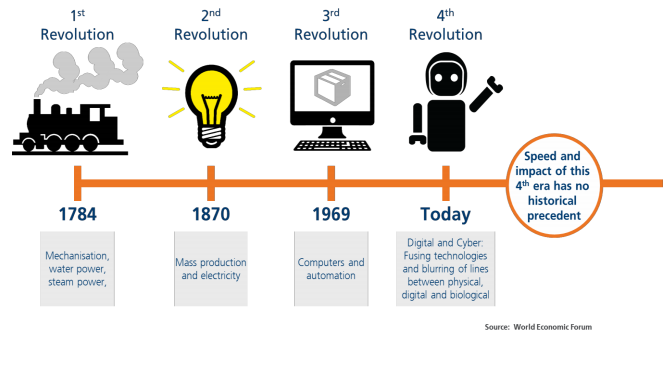Businesses that underestimate dramatic pace of technological change, do so at their peril

90% of all data in the world was created in the past two years and there are now more interconnected devices on earth than there are people
Disruptive technologies are not just displacing existing ways of doing things - they are creating new markets and bringing new risks and benefits, Professor Richard Clegg, CEO of Lloyd's Register Foundation, told delegates at Airmic's ERM Forum in London last week.
Speaking in the opening plenary, which laid bare the dramatic pace of technological change, Prof. Clegg warned members that the potential for disruption is huge and complacent businesses will come unstuck: "At the corporate level, if the risk [of new technologies] isn't appreciated, you can go out of business."
He said that even market leaders are vulnerable: "In the past, some of the companies that have failed in the innovation race were once pioneers in innovation themselves. But they were then leapfrogged by their competitors."
|
How fast are we moving? Putting change into context
Source: Professor Richard Clegg, speaking at Airmic's ERM Forum 2017 |
Noting that there are now more connected devices on earth than there are human beings, he warned that businesses must be highly in-tune with the current pace of change. "It took more than a century to move from the steam age to the computer age, but it's taking just decades to go from computers to the age of data and digital we're now entering. Change is happening faster and faster; the whole thing is compressing."
A key question is how to develop checks and balances in this new world. "How do you regulate a robot which is making its own mind up? These sorts of questions have real safety implications," he warned.

